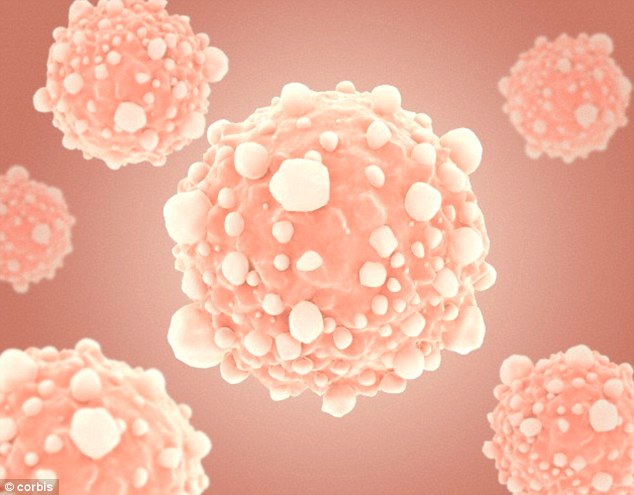Cancer is as old as the earliest life on earth and may never be completely wiped out, scientists have warned.
Despite billions being invested in countless research projects across the globe, a new study has reached the sobering conclusion: the disease is here to stay.
The discovery means the disease will be more difficult to cure or treat, because of its highly evolved structure.
It suggests our cells' ability to develop cancer is 'an intrinsic property', that has evolved over millions of years.
But researchers, at Germany's Kiel University and the Catholic University of Croatia, say 'knowing the enemy' will give scientists the best possible chance to fight it.
The evolutionary biologists have found the first evidence of naturally occurring tumours in two species of hydra - simple freshwater animals.
They say the existence of the disease in the tiny, coral-like polyps that first emerged hundreds of millions of years ago, suggests cancer is an inherent part of our evolution.
Professor Thomas Bosch, who lead the research team, said: 'Cancer is as old as multi-cellular life on earth and will probably never be completely eradicated.'
While searching for the origin of the cancer gene - the cause of all tumours - the team stumbled upon the discovery in hydras, said scientist Tomislav Domazet-Lošo.
He said: 'Our data predicted that the first multi-cellular animals already had most of the genes, which can cause cancer in humans.'
But they wanted to establish the evidence that these animals can actually suffer tumours.
The team now believe they have achieved an impressive understanding of the roots of cancer.
Professor Bosch said: 'Now we have discovered tumour-bearing polyps in two different species of hydra, an organism very similar to corals.
'This provides proof that tumours indeed exist in primitive and evolutionary old animals.'
A further discovery was that the invasive nature of the disease also dates back millions of years.
If tumour cells are introduced into a healthy organism, they can trigger tumour growth in the hydras, the team found.
Professor Bosch added: 'The invasive characteristic of cancer cells is also an evolutionary old feature.'
In the U.S. alone it is estimated more than $500 billion was invested in cancer research by 2012.
The worldwide research has led to improved preventative, diagnostic and treatment methods, which have been proven to yield successes.
But every second person affected by cancer still succumbs to the disease today.
Professor Bosch concluded: 'Our study makes it unlikely that the War On Cancer proclaimed in the 1970s can ever be won.
'Cancer cells have deep evolutionary roots. Any crucial cell in your body can make a mistake. You carry a time bomb in your body when you're born.
'It can explode early in life, or middle age or later. That doesn't mean that, with a patient who develops cancer, there's nothing you can do.
'Medical technology will allow us at early time points... at least in some cases, to successfully treat and clean a patient completely and forever of troublemaking cells.
'Knowing your enemy from its origins is the best way to fight it, and win many battles,' he added.
The study was published in the journal Nature Communications.

















